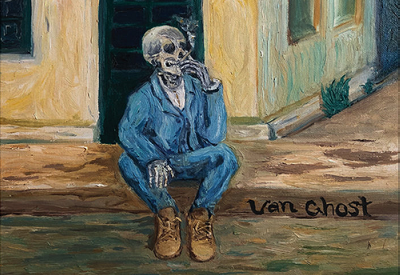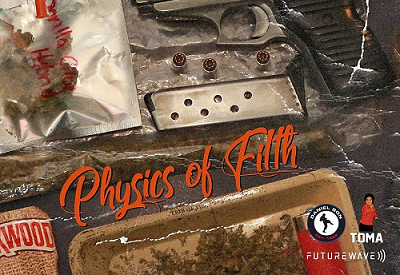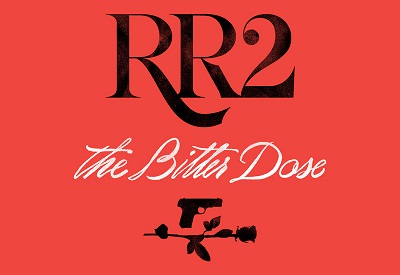by Dustin


Since dropping Moonshine Mix with Crate Divizion a little over two years ago, a lot has happened in Daniel Son’s fast moving career. Having teamed up with the insane production talent Futurewave the pair went on an unbelievable run of three albums, putting rap on notice that the North was a force to be reckoned with. Each record pushed their own limits, budding a reputation as one of the most reliable and dynamic acts in the scene. Though Futurewave didn’t spearhead the instrumentation of the original, their fourth offering was set to be Moonshine Mix 2, a record that barely afforded fans enough time to digest Yenaldooshi from earlier this year before making itself hard to ignore. Few artists have the drive to complete four unforgettable albums in such a short span of time, but if anyone were to do it, it was going to be Daniel Son and Futurewave.
And of course, they did.
Daniel Son has pushed himself to new heights with every release, and Moonshine Mix 2 was no exception to that trend. As one should come to expect, his confidence and attitude behind the mic built up a massive presence leaving no second of any verse wasted. From a pure engagement standpoint, Daniel Son delivered one of the boldest emcee performances of the year with his blunt and assertive style laying down bar after bar of filthy — realistically morbid and cold — life observations. As if that wasn’t quite immense enough, the way he approached flows and rhyme patterns on Moonshine Mix 2 felt significantly more unpredictable than in the past; moreover, it was genuinely exciting to have that uncertainty and built up anticipation between tracks. It’s not like he changed his style fundamentally either, he’s simply refined what he does best to the point of it being jaw-dropping. For an underground hip-hop scene in Canada that has been shaky at times, an artist with the hunger and bite of Daniel Son has continued to be a huge refresher. While it’s been evident for a while that he had something special, this album could be seen as the moment that his track record as a rapper went from impressive to nearly untouchable.
Of course for every leap forward Daniel Son made on Moonshine Mix 2, Futurewave was right alongside with absolutely spectacular instrumentals. Among his peers, Futurewave is one of a small handful of producers that seem to be making an effort to do something inventive and involved with the art of sampling. The beats here felt inspired by the sound of the original Moonshine Mix tape, but they definitely had his signature offkilterness and punch. His sample selection was super varied, yet it flowed perfectly. For example the gritty and oddly disorienting “Pray 4 Me” led into the much more relaxing “Kip Raines,” and even though they couldn’t have been more different, their distinct Futurewave flair made them work together. He’s shown time and time again that he’s one of the best in the business at overseeing full album production, and Moonshine Mix 2 was reflective of that. It’s records like this that people learning to produce should take the time to study, because the way that Futurewave assembles instrumentals is so far beyond the average. He didn’t just take the easy route of basic loops. His production built and fell back in ways that complimented and emphasized everything Daniel Son brought to the table, but left him ample room to let his enormous personality breathe. It was all tied together in such a pleasing way, complete from front to back.
It’s not often that a sequel outdoes its predecessor, but it didn’t come as a surprise that this one did (and the first Moonshine Mix wasn’t a slouch in its own right). These two artists are constantly setting the bar for quality in the underground hip-hop scene. Whether it be Pressure Cooker, Physics of Filth (with the talented Asun Eastwood), Yenaldooshi, or Moonshine Mix 2, Daniel Son and Futurewave have been able to do no wrong. This was a great release, and what’s more encouraging is that they’ve shown no signs of taking the foot off the gas. Much like Roc Marciano, Ka, or the collective of Griselda, there are no direct comparables to what those around Brown Bag have been able to establish as their sound. Moonshine Mix 2, as with their previous releases, stood firm as something unique to itself and special. In the modern hip-hop environment of abundant rapidly available music, being able to stand out based on individuality and pure quality is rare. Not only did they manage to achieve that, but they made it look casual. For those who enjoy grimy, nasty and raw street rap, look no further: this album could very well end up being your project of the year, no doubt.








